TeamLCTFL on writing setting
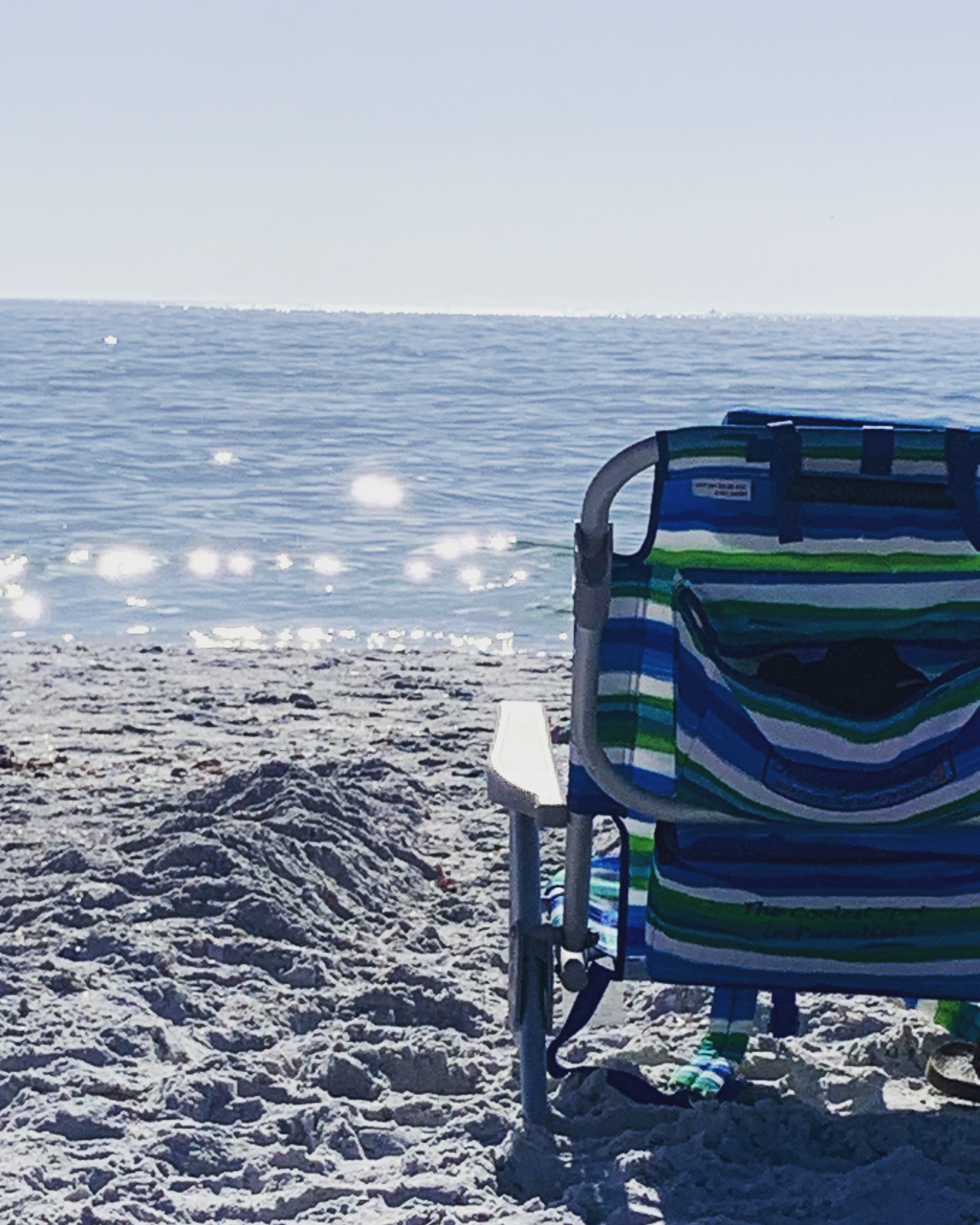
One of the best parts of reading a book is picturing the setting. But do you ever wonder what exactly an author might have had in mind when they wrote a specific passage?
TeamLCTFL was chatting about that recently in our Slack group between monthly meetings, and we got to sharing inspo images with each other. Not only was is super cool to jump into each other's minds, but we realized it was a useful exercise to cross check our descriptive skills. Were we actually putting into words everything we were envisioning in our minds? Will our readers be able to picture a setting that matches up with our intentions?
More than anything, we decided that setting is about layering. Yes, it often includes an expository description of physical elements (a bluebird sky, streets littered with colorful confetti after a parade, the chaos of a busy city street). But it also comes through in characters' *reactions* to their surroundings. To put it another way: The nuance or vibe of a setting can be conveyed by delving into how a setting makes a character feel. Are they frazzled by what they're experiencing? Well, that could underscore the frenetic energy you might want a reader to pick up about a certain location. Is a character at peace near the most serene, hidden away beach? That could be further emphasized by their word choice or speech patterns...to really show just how chill their surroundings are.
In fiction, names of places are another great way to heighten a setting and help it convey meaning. Sure, you *could* just say that your characters skied down a challenging run with jagged peaks and nearly-invisible moguls. And you *could* name the run after one you've maybe even skied on, or based your story on, like Smuggler's Notch (why does every ski resort seem to have a run called Smuggler's Notch?!) Or you could dramatize the name to really paint a picture for your reader and call it something like "Certain Death" or "A Walk in the Park" or "Easy Street." Maybe that seems like pretty basic advice, but we wager that if you go back through your own Work In Progress, you'll probably find a bunch of places where you could change some names and really elevate your work. (Go on! Try it!)
Either way, here are some passages from our own work that we've matched up with visuals that inspired the words. Hopefully they'll get you thinking about how you're including scene and setting details in your own work... or at least that they're fun to read!
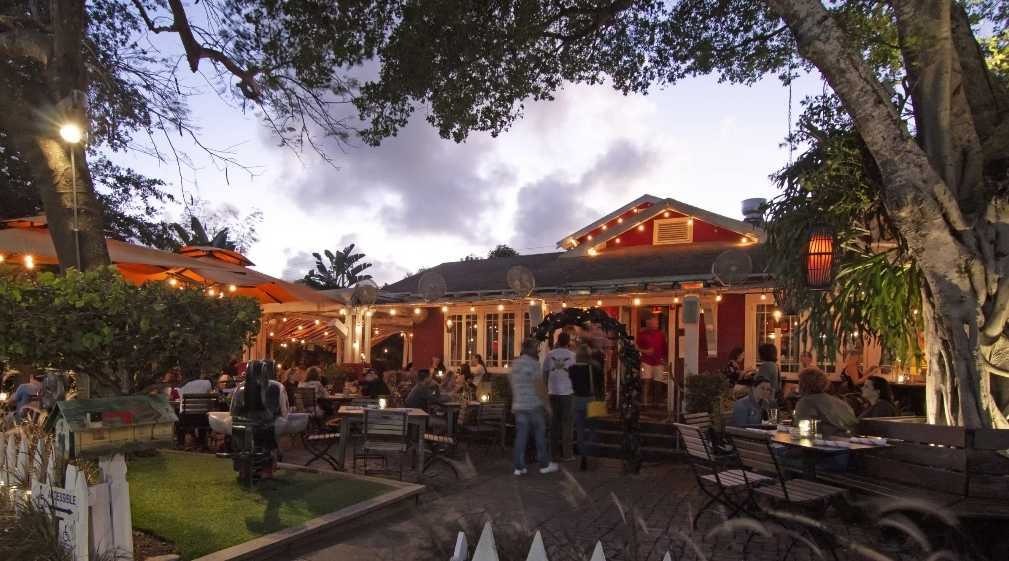
Warm nights on Florida's Atlantic coast, good music and romance under the stars —these are some of the key descriptive elements of Robin Morris's forthcoming novel The Days Between. And she weaves them all so effortlessly into her prose:
"An hour later Emmy found herself beside Max and Javi at a table on the lawn of an old house, renovated into an artsy restaurant. The bartender was buddies with Javi, and slid their drinks across the bar, his eyes panning the crowd for the manager. Inside, reverberation from an electric guitar cut through the night before the band found their rhythm and music carried out onto the lawn. An ancient banyan tree reached its arms protectively overhead, strands of twinkle lights wrapped in its branches. Max sailed beanbags effortlessly through a cornhole board, while each of Javi’s slapped against the wood. Emmy sipped her third mojito—cold and strong—and Max caught her gaze and his smile widened. In her rum-induced haze, she found herself overwhelmed with happiness; her life had melted into a sort of dream."
***
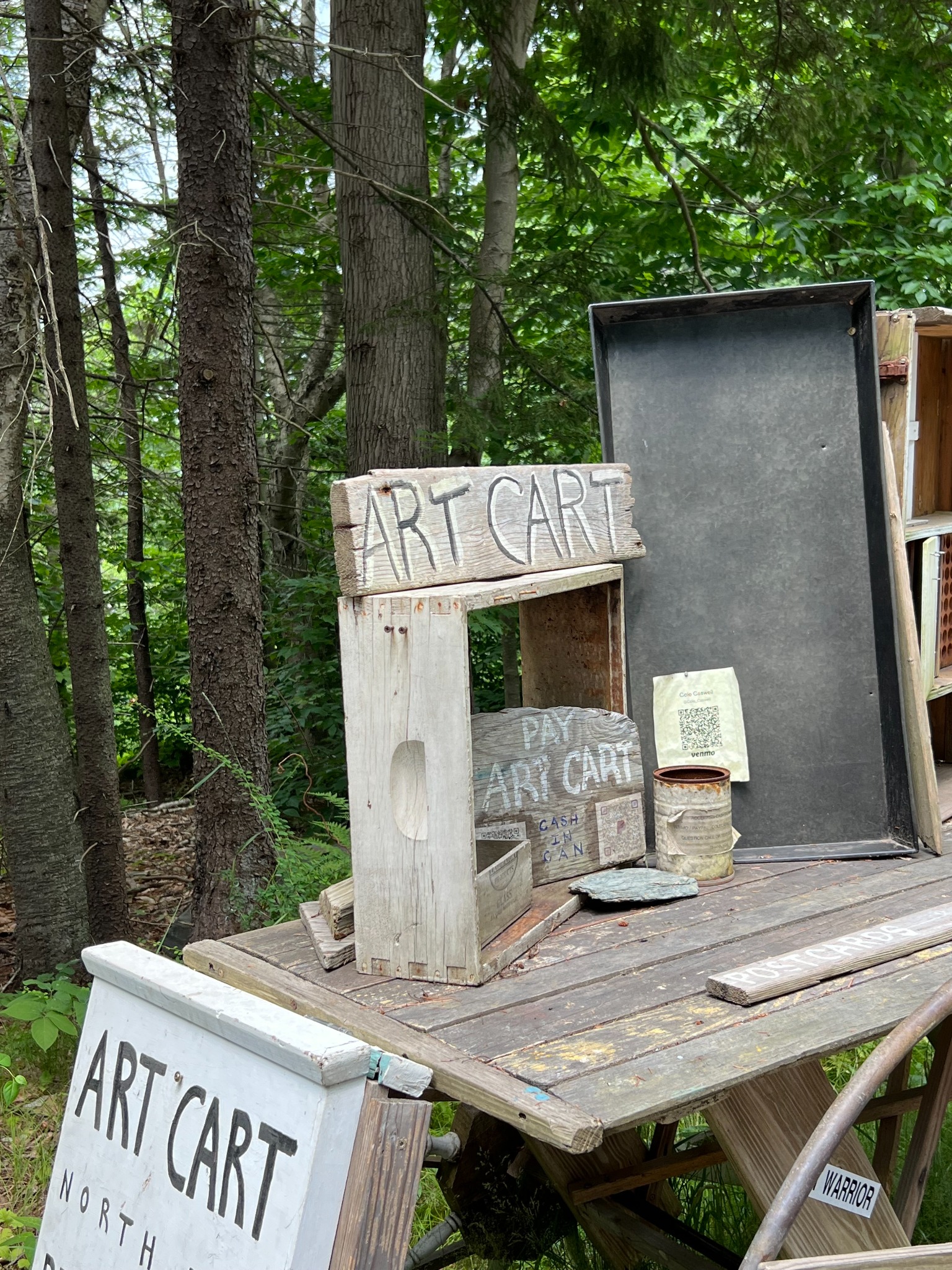
One of Mary Taggart's forthcoming stories is all about family and friendship set mostly on a picturesque island off the rocky Maine coast, which you can totally feel in this passage:
"I want Jacks to look out for the steady stream of bikers, walkers, and the occasional car coming along the narrow, tree-lined lane, checking out the art cart filled with her mom's work. It's at the edge of their drive, like a veggie stand, but for paintings. Her dad calls it 'the tourist trap."
***
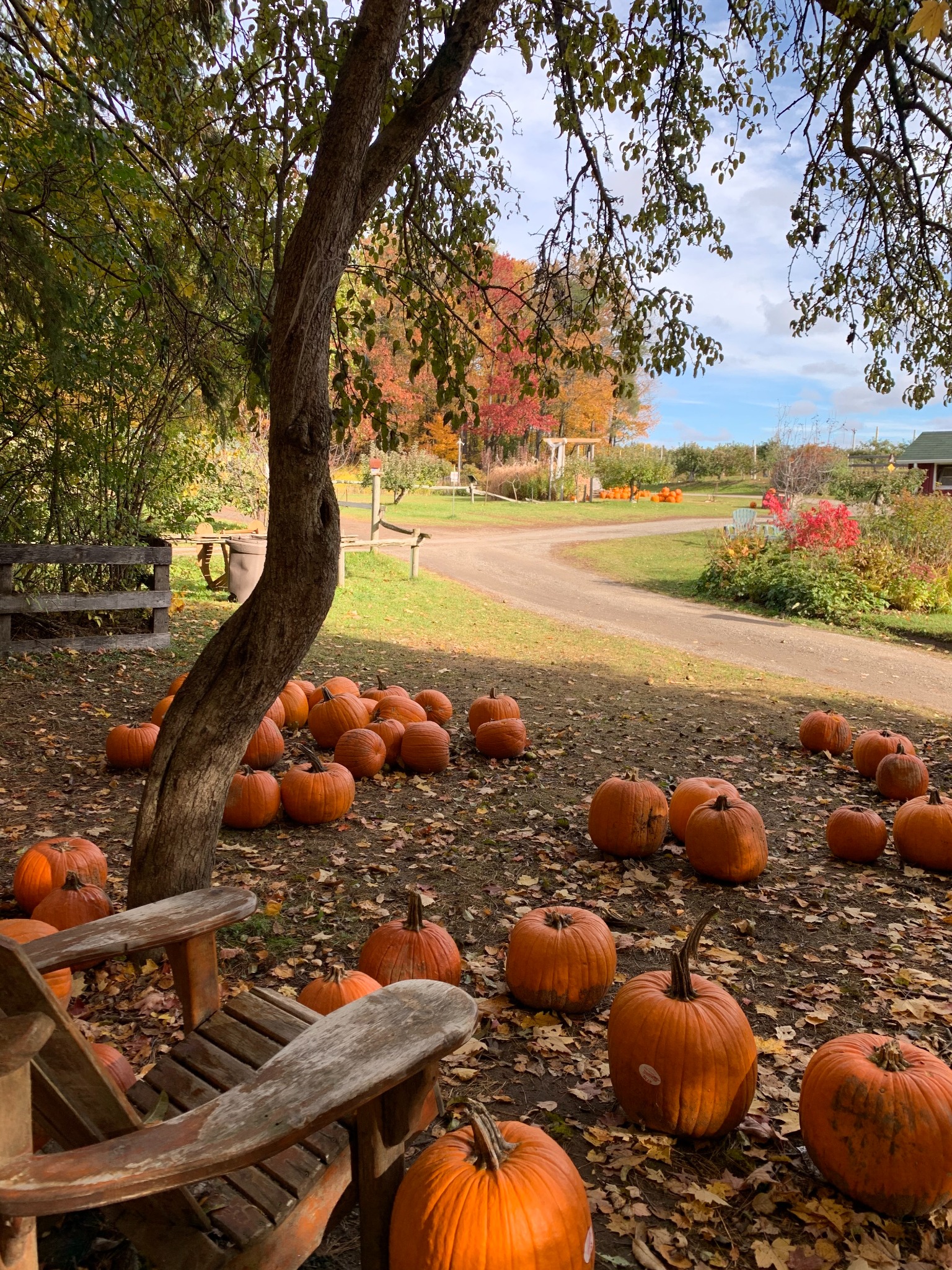
When Brianne Sommerville was dreaming up the bucolic farm her characters stroll through in forthcoming thriller If I Lose Her, she wanted her readers to feel like they were right there, too. And come on. She totally nailed it.
"The leaves have turned the warmest of colors and it wakes my heart up. Why decay makes me happy, I’m not sure, but I’m certainly not the only one who gets swept up in the autumn season. The farm is packed on this Sunday afternoon. With only two weeks until Halloween, I’m not surprised our entire town has made the fifteen-minute drive north to the quaint, family-owned farm.
I wear Addison in my wrap, and we make our way through the harvest activities. We stroll through the corn maze and JP runs a few meters ahead with the intention of jumping out to scare us. He ends up popping out from the golden husks just as an elderly woman and her daughter walk by. They scold him for his prank, and I cover my laughter with a cough as I saunter past them, pretending I’m there alone with my baby."
***
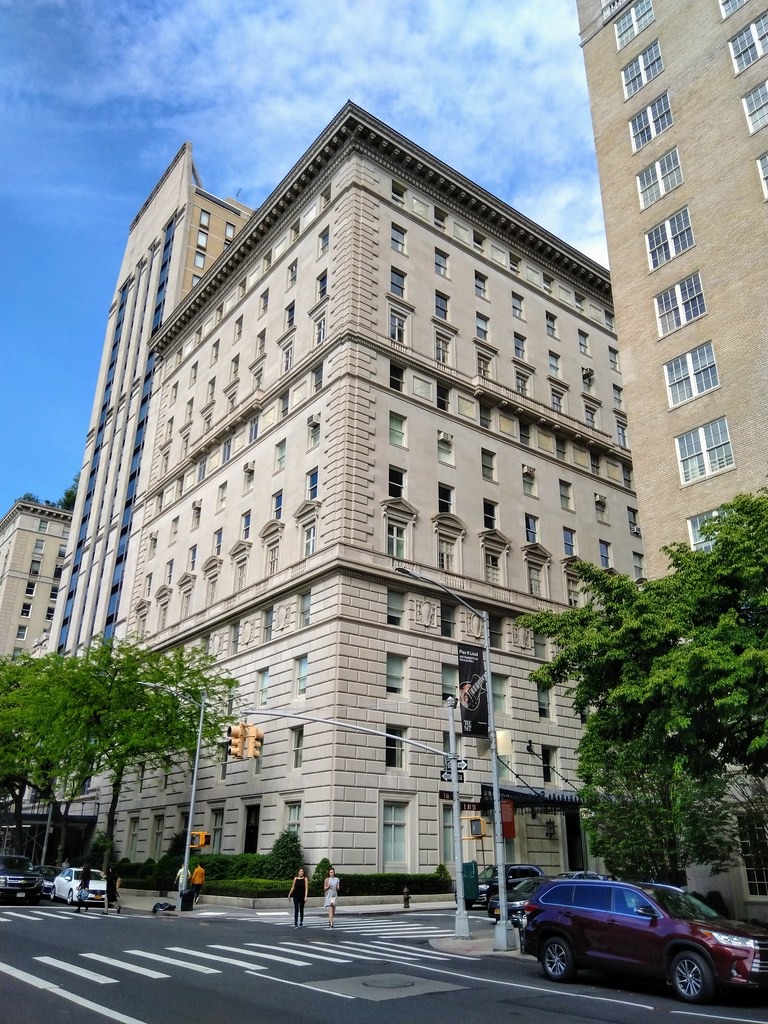
In Audrey Brashich's upcoming work, this is how one of the Upper East Side's most sought-after apartment buildings makes an appearance:
"Fletcher sauntered over to me. “Whenever I look out my window, I always think about how awesome this place would be for skateboarding.” He pointed across Fifth Avenue to a stately building with an intricate wrought iron and glass awning over the entrance.
“I forgot you live right here," I lied. Everyone knew where he lived. I just refused to give him the satisfaction of knowing that.
“Been a long time since the Winners bus dropped me off.” He sat down next to me despite the lack of invitation.
“Which floor are you?” I didn’t really care. It was just something to ask.
“Fifth.” He swiped his sandy hair out of his eyes.
I counted from the ground floor to the fifth, where the windows were all uniform with no air conditioners hanging outside. These clues meant that his apartment took up the entire floor and that they had central air conditioning—a true mark of luxury in a New York City pre-war building. Above each of the windows there were neoclassical stone pediments, which made Fletcher’s floor seem like it was the grandest and most important in the building."
***
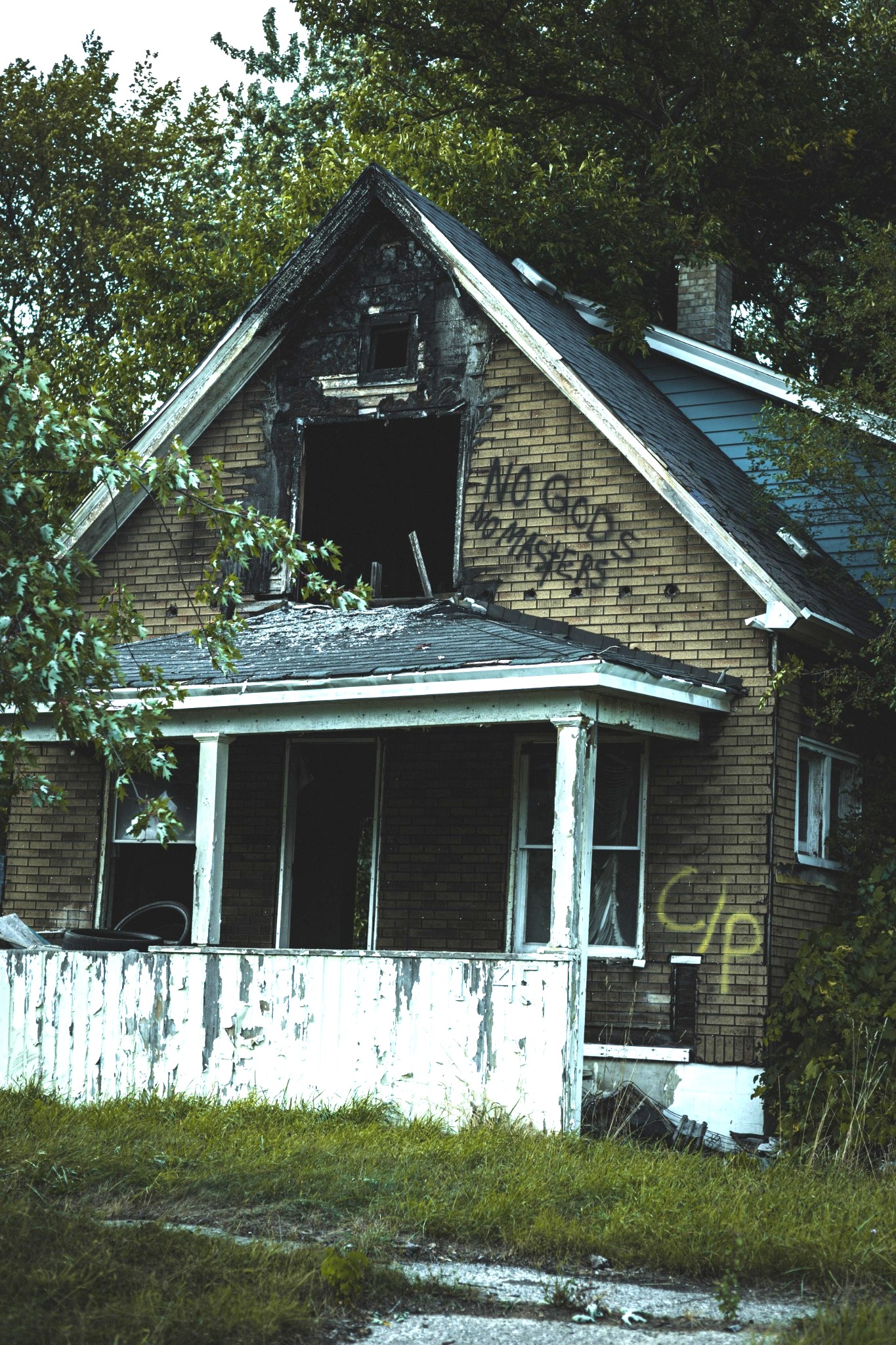
No one —quite literally no one—writes eery like Jody Gerbig.
"Not even glass, shattering against the heave of a cement rock, picked from the gray road, or the backfiring of indignant cars, or the banging of rusted storm doors, house-coated mothers shouting, back inside, boy. Not even the clack of stilettos and the shiver of pimpled flesh in the cold, cars slowing, then idling, the low timbre of male voices spilling from their open windows. Not even the crash of vengeful dishware or the howl of hungry dogs. Not even the frazzled laugh of my father, sitting in a neighbor’s kitchen, tossing cards on a folding table. Only unrelenting cold. Rows of houses, once band-aid-shuttered, now boarded like coffins, molted and lean. Three bare trees, a lone leaf clinging to a cracked branch. Tall switch grass, brown and biting. A single crow, pecking at a carcass in the road, and a withered woman, sitting in a metal chair on her porch, stroking an ancient cat, her eyes cast over the road to Cindy’s locked and boarded house."
***
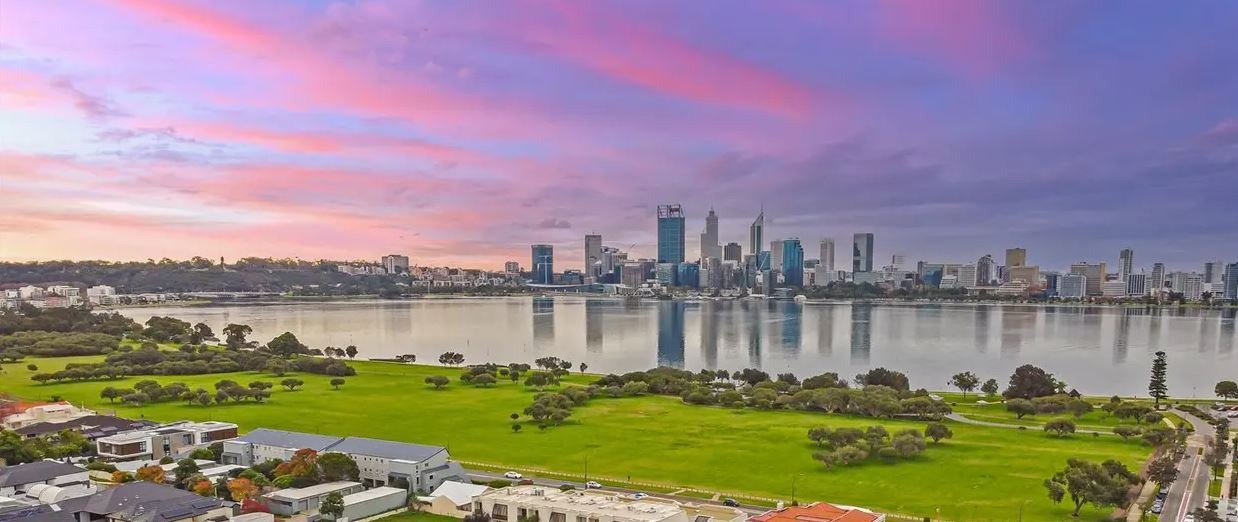
When Katy Mayfair writes about Perth, Australian. THIS is what she sees. (And now you can, too!)
"Marise banged her palm on the steering wheel as the car inched through the traffic heading towards Sir James Mitchell Park, a large green open space on the South Perth foreshore. Past the shoreline, the Swan River ballooned out into a big lake, and on the opposite side perched the buildings of Perth’s central business district, shimmering their reflections on the river. Perth was ridiculously picturesque with its opposite riverbanks separated by a sheet of sparkling blue, but it did mean that exactly fifty percent of possible roadways into either the central business district or the bustling South Perth precinct were moot because one cannot drive a car on water. Why couldn’t they stage these events somewhere in a nice big field with sixty roads leading to it? Nope, had to be right in the middle of the city, where she and fifteen thousand other people would fight over eight car bays."
***
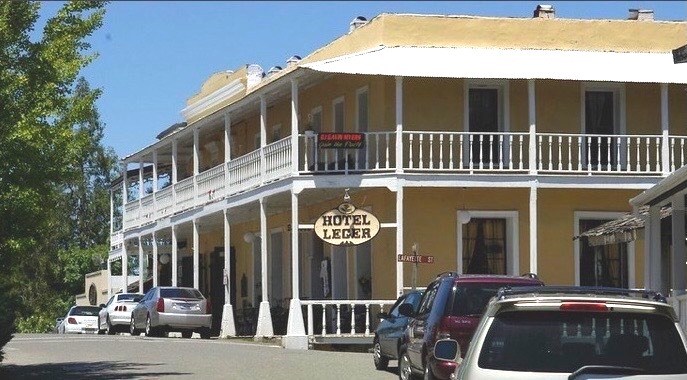
Jes Wright's forthcoming work has atmospheric vibes mixed with rock and roll in a dusty old western town. This is what that looks and sounds like:
"An eerily soft light, the kind thick with dust flakes, illuminated the hotel’s bar. The place, built in the 1880s, reeked of stale beer and spilled soda pop while a fine layer of cigarette smoke hovered like ghosts almost touching the silver metal ceiling tiles. The town drunk, once arrested for riding his horse backward after too many drafts of ale, leaned over his empty beer mug on the polished oak bar. His red splotchy face nodded forward and bounced back up, so he swiveled around on his barstool like an old vulture on a fence post.
Albie, the bartender, sliced lemons and limes into wedges for the drinks ordered by tourists, who drove from the Bay Area, wanting to stay in an authentic Gold Rush town. The hotel stood in the center of Sapphire Hill like a castle. Regal amidst dilapidated shacks. All roads ended and began at the bright yellow hotel. Tall, heavy steel doors latched open, like a dead vulture’s wings spread wide, stiff on the side of the road. A brass bell hung over the tall interior door with white paint peeling on the edges around the inlaid bubble glass windows. In the quiet of late afternoon, the few customers turned their heads to the sound of the bell, hoping for their drinking buddy’s arrival.
The original hotel burned down twice, but this version, with the tall wooden beams and the tacky Victorian-style wallpaper, held a charm in its vast hallways and creaky wooden floorboards. My mom slipped a few coins in the jukebox, playing a country western tune while I sat at a small table near a side window overlooking the street. Albie placed a Shirley Temple drink — a pink colored sweet soda with three maraschino cherries on top — onto the wobbly table. He knelt down, tucking a few matchboxes under one of the table's legs, securing it. Afterward, my mom took Albie’s hand, and they spun around in a two-step, singing, laughing, and temporarily waking up the old vulture at the bar. When the song ended, my mom went back to cleaning rooms, and I buried my head in my book, The Lion, The Witch, and the Wardrobe, wondering if an upstairs closet would transport me back to Los Angeles, where I’d left behind my best friends a few months ago."
Post a comment